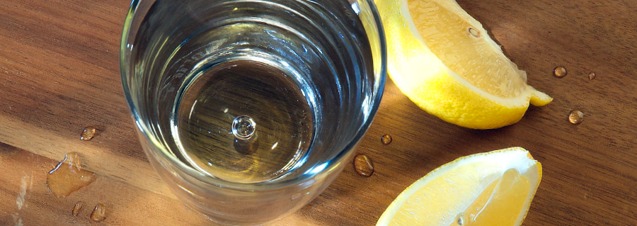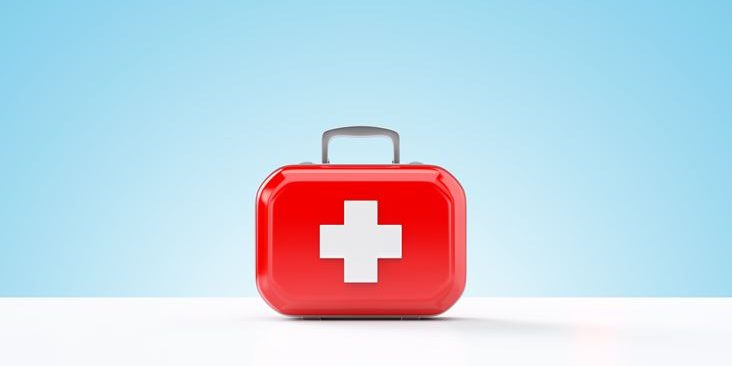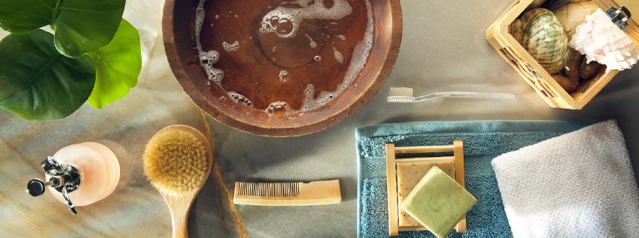NOBODY likes to get sick. The disease is inconvenient and generates expenses. In addition to feeling bad, you may not be able to work, study, earn money or take care of your family. You may need care and have to pay for expensive medicines and treatments.
No wonder people say, “It’s better to be safe than sorry.” While it’s not always possible to avoid getting sick, you can do a lot to delay the onset of illness or even prevent certain diseases. Here are five habits that can help you have better health right now.
1 HAVE A GOOD HYGIENE
In certain situations, washing your hands is especially important to protect your own health and that of others. You should wash your hands:
-
After using the bathroom.
-
After changing diapers or helping a child use the bathroom.
-
Before and after treating an injury or cut.
-
Before and after being around someone sick.
-
Before preparing, serving or eating a meal.
-
After sneezing, coughing or blowing nose.
-
After touching an animal or animal droppings.
-
After handling garbage.
Also, it is important to wash your hands properly. Research shows that a large percentage of people who use public toilets do not wash their hands or wash them properly. What is the right way to wash your hands?
-
Wet your hands with clean running water and then use soap.
-
Rub your hands until they foam, not forgetting to clean the nails, the thumbs, the backs of the hands and between the fingers.
-
Rub for at least 20 seconds.
-
Rinse in clean running water.
-
Dry with a clean cloth or paper towel.
These are simple measures, but they can prevent illness and save lives.
2 USE SAFE SOURCE OF WATER

You can do a lot to decrease the chances of getting sick or even preventing yourself against certain diseases Most often, cholera is contracted when a person ingests water or food that has been contaminated with fecal matter from infected persons. Even after a natural disaster, you can take steps to protect yourself if the water is contaminated. As? Make sure that the water you use to drink – in addition to the water used for brushing your teeth, making ice, washing dishes, washing food and cooking – is from a safe source such as a public water supply company that treats Properly sealed bottles from a trusted supplier. If there is any possibility that the water in your home is contaminated, boil it before using it or treat it with appropriate chemicals. If using chemicals such as chlorine or water purifying tablets, carefully follow the manufacturer’s instructions. Use quality filters if they are available at an affordable price. If there is no product for water treatment, add two drops of bleach to each liter of water, mix well and then allow the water to stand for 30 minutes before using it. Always store treated water in clean, covered containers in order to avoid possible recontamination. Make sure that any utensils – such as a shell – that come in contact with your treated water supply are clean. Hands should be clean when handling containers of water; Do not immerse your hands or fingers in the drinking water.
3 TAKE CARE OF YOUR FOOD

If you eat too much sugar and fat, you can end up overweight. To reduce this risk, drink water instead of sweet drinks. Try to eat more fruit rather than candy. Limit the intake of solid fat, found in foods like sausage, meat, butter, cheese, cake and biscuit. And when cooking, use healthier oils instead of solid fat. Too much salt, or sodium chloride, in food can raise your blood pressure to a harmful level. If you have high blood pressure, read the information on the packs to limit your sodium intake. Instead of salt, use herbs and spices to season your meals. How much you eat can be as important as what you eat. Therefore, during meals, stop eating as soon as you are satisfied, but not full. A problem related to nutrition is the risk of food poisoning. Any food can cause intoxication if it is prepared or stored incorrectly. According to the World Health Organization, millions of people get sick every year because of contaminated food and many die. What can you do to avoid this problem? Vegetables and greens may have been grown on fertilized soil with manure, so wash them thoroughly before preparing them. Wash hands, cutting board, utensils, dishes, and kitchen countertop with hot soapy water before preparing each item. To avoid cross-contamination, thoroughly wash a surface that has been in contact with eggs, meat, chicken or raw fish before using it to prepare food. Cook the food to the right temperature and immediately put in the refrigerator any perishable item that will not be consumed soon. Discard perishable items that have been left for more than two hours at a temperature between 21 ° C and 23 ° C or have been left for more than one hour at a temperature above 32 ° C.
4 PRACTICE PHYSICAL ACTIVITIES

Sleep well. Maintain mobility. Keep bones and muscles strong. Achieve or maintain a healthy weight. Reduce the risk of depression. Reduce the risk of premature death. If you do not exercise, you are more likely to: Suffer from heart disease. Have type 2 diabetes. Develop high blood pressure. You will have high cholesterol. Have a stroke. The type of physical activity that is right for you depends on your age and health. Therefore, it is best to consult your doctor before starting an exercise program. Several sources recommend that children and adolescents perform at least 60 minutes of moderate to intense activity each day. Adults should practice 150 minutes of moderate activity or 75 minutes of intense activity each week. Choose an activity that is fun. You may enjoy basketball, tennis, soccer, hiking, biking, gardening, swimming, canoeing, jogging or other aerobic exercise. How can you tell if an activity is moderate or intense? In general, a moderate activity is one that makes you sweat; In the intense, it is difficult for you to talk.
5 STILL ENOUGH

Getting enough rest should not be optional. According to experts, getting enough sleep is important for: The growth and development of children and adolescents. Learning and retaining new information. Keep balanced hormones that affect metabolism and weight. Cardiovascular health. Disease prevention. Not enough sleep is related to obesity, depression, heart disease, diabetes and tragic accidents. Sure enough, these are good reasons to get enough sleep. So what can you do to improve your sleep? Try to go to sleep every day at the same time and try to wake up at the same time every day. Make your room a quiet, dark, relaxing place that is not too hot or too cold. Do not watch TV or use electronic devices while in bed. Make your bed as comfortable as possible. Avoid heavy meals, caffeine and alcohol before bed. If you follow these tips and still have insomnia or other sleep disorders – such as excessive daytime sleepiness or shortness of breath while sleeping – it may be best to consult a qualified health professional. Source: JW






